The 2020 Democratic debates: A pop of red, a naked neck and a sea of navy blue
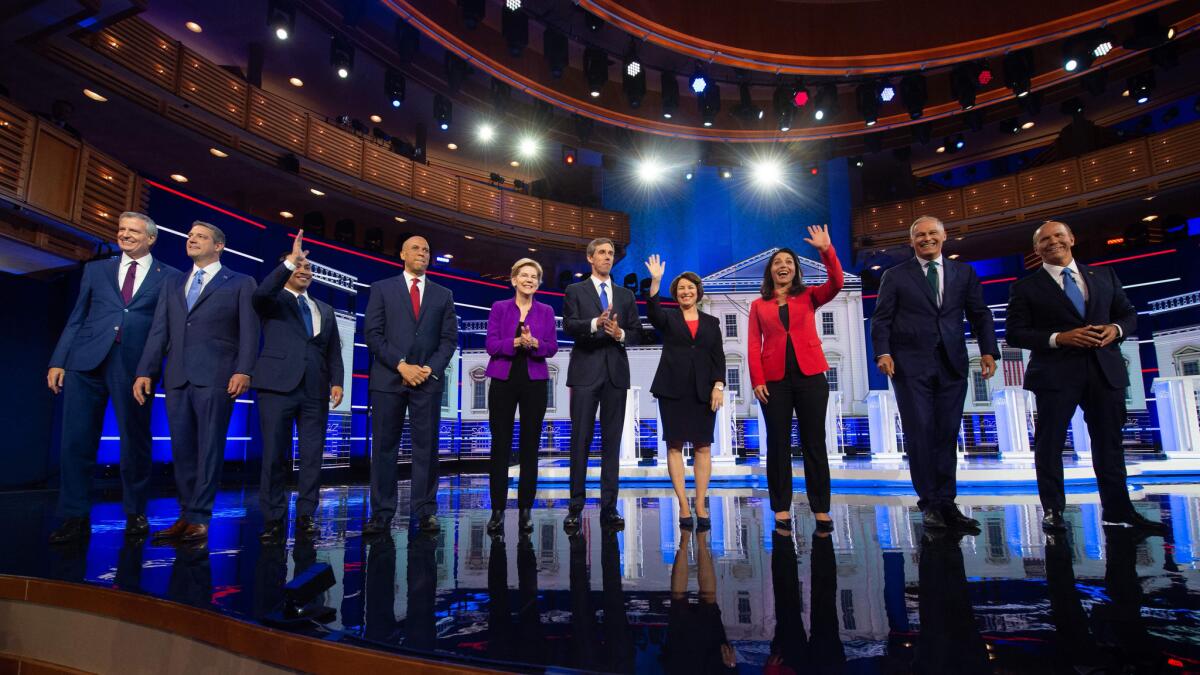
- Share via
Two nights. Twenty candidates. Four hours. How do you stand out if you are a candidate running for the Democratic nomination for president? Coming up with a killer sound bite is one option.
“On Jan. 20, 2021, we’ll say adios to Donald Trump.” (Julian Castro.) “America doesn’t want to witness a food fight. They want to hear how we’re going to put food on the table” (Kamala Harris.) “I just want to say that there’s three women up here that have fought pretty hard for a woman’s right to choose.” (Amy Klobuchar.)
But so is deciding what to wear on that crowded stage.
COLUMN: Democratic debates mirror life: Men yell and interrupt. Women (mostly) wait their turn »
Or not. Andrew Yang’s moment in the spotlight came even before the second night of the debates began, as viewers and commentators began to realize that he was not wearing a tie. It was not a sartorial decision applauded by everyone. On MSNBC, anchor Brian Williams turned to panelist Eugene Robinson and said, “Do you look at Mr. Yang and say, ‘Would it kill you to wear a tie?’” But that departure from the norm quickly made Yang a trending topic on Twitter in the early part of the evening — and a new Twitter account was born, @AndrewYangs_Tie. (“Hey guys, sorry I didn’t make it to the debate stage. Will do better next time.”) Unfortunately, Yang was barely heard from the rest of the night.
The debates made history in that for the first time there were multiple women on the stage — three the first night and three the second. And the women probably did a better job of seizing that fashion moment than the men, most of whom (except for Yang, of course) wore basically the same variation of a dark suit with a solid-colored tie, making it especially hard to distinguish one lower-tier candidate from another.
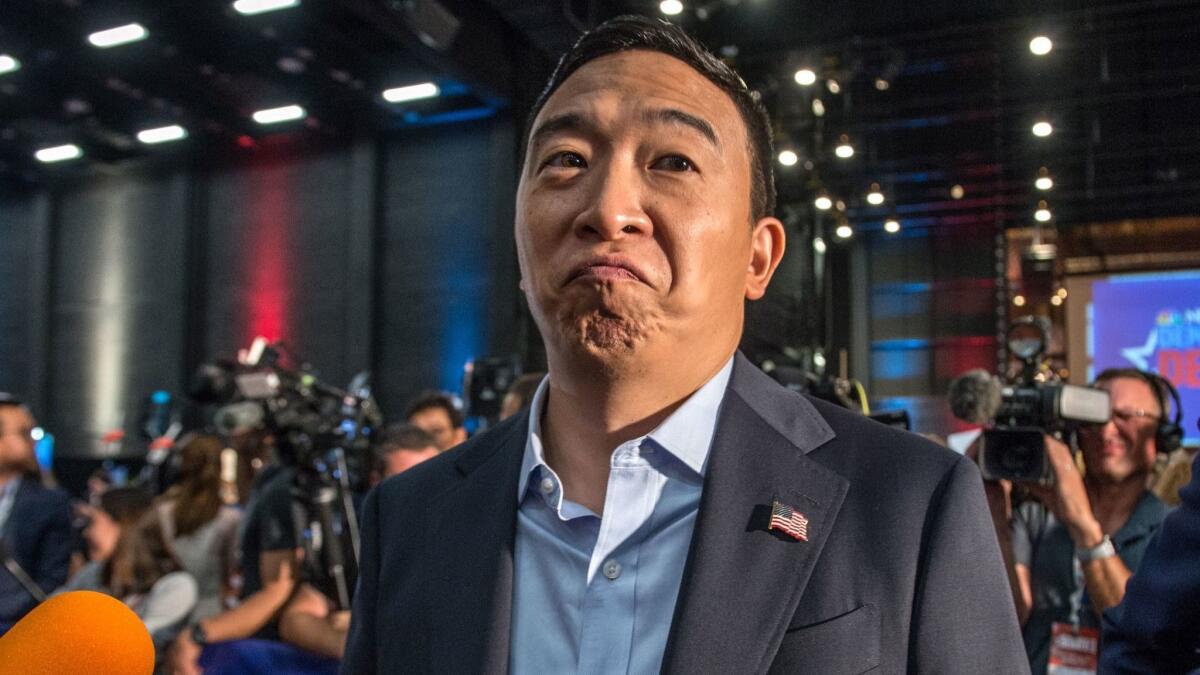
Eight takeaways from Night 1 of the Democratic debate »
As the NBC broadcast of Wednesday night’s debate began, Hawaii Rep. Tulsi Gabbard’s blazing red jacket (worn over a black shirt and pair of black pants) was the first thing that caught the eye as the camera zoomed down from the ceiling of Miami’s Adrienne Arsht Center for the Performing Arts. The next pop of color came by way of Massachusetts Sen. Elizabeth Warren’s regal purple Nina McLemore jacket. Beyond that, the stage was a sea of sameness rippled ever so slightly by splashes of necktie color – predominantly blue – and the triangle of red blouse peeking from the navy blue blazer Minnesota Sen. Amy Klobuchar paired with a knee-length skirt.
With the country’s ever-deepening red state/blue state division, Warren’s choice of purple played as a powerful symbol of bipartisanship. It was also one she could easily convey without deviating from her trademark uniform of popped-collar jewel-tone jackets paired with black pants.
At first blush, Gabbard’s cardinal jacket seemed as appropriate on the stage as a MAGA hat and came off as a calculated focus-puller. In reality, she was just Tulsi being Tulsi; opting for a power color the congresswoman has turned to in other high-stakes, high-profile TV appearances (including her January appearance on “The Van Jones Show” where she announced she was running for president, and a March appearance on “The Late Show with Stephen Colbert”).
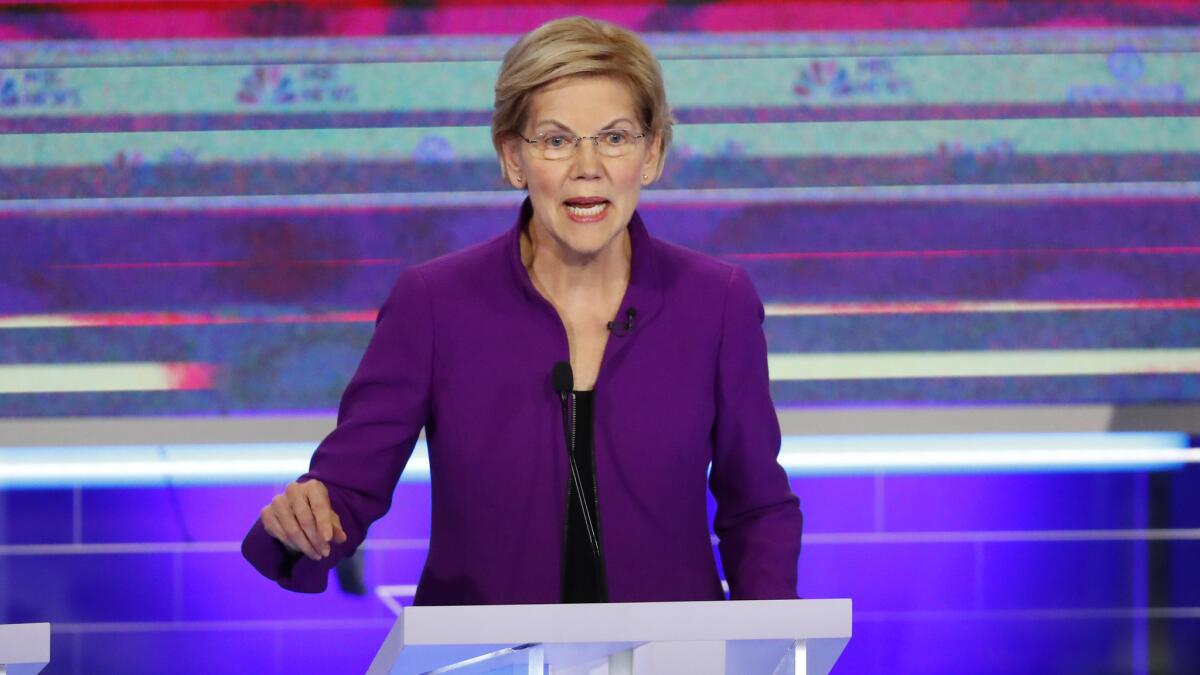
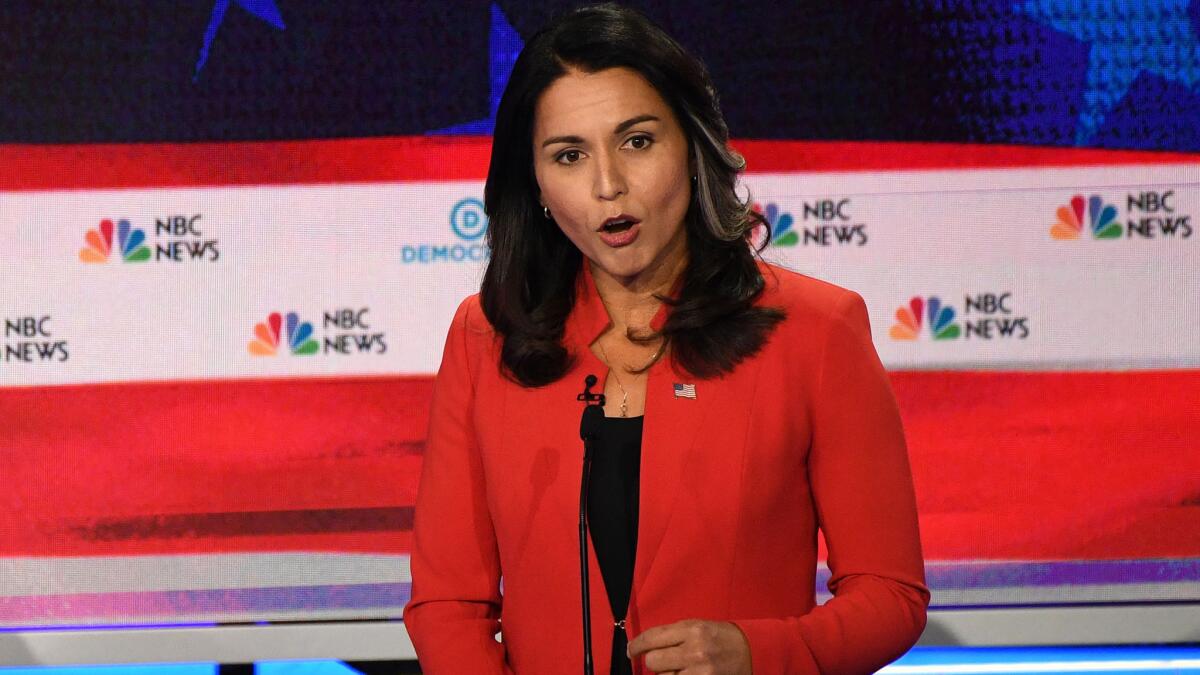
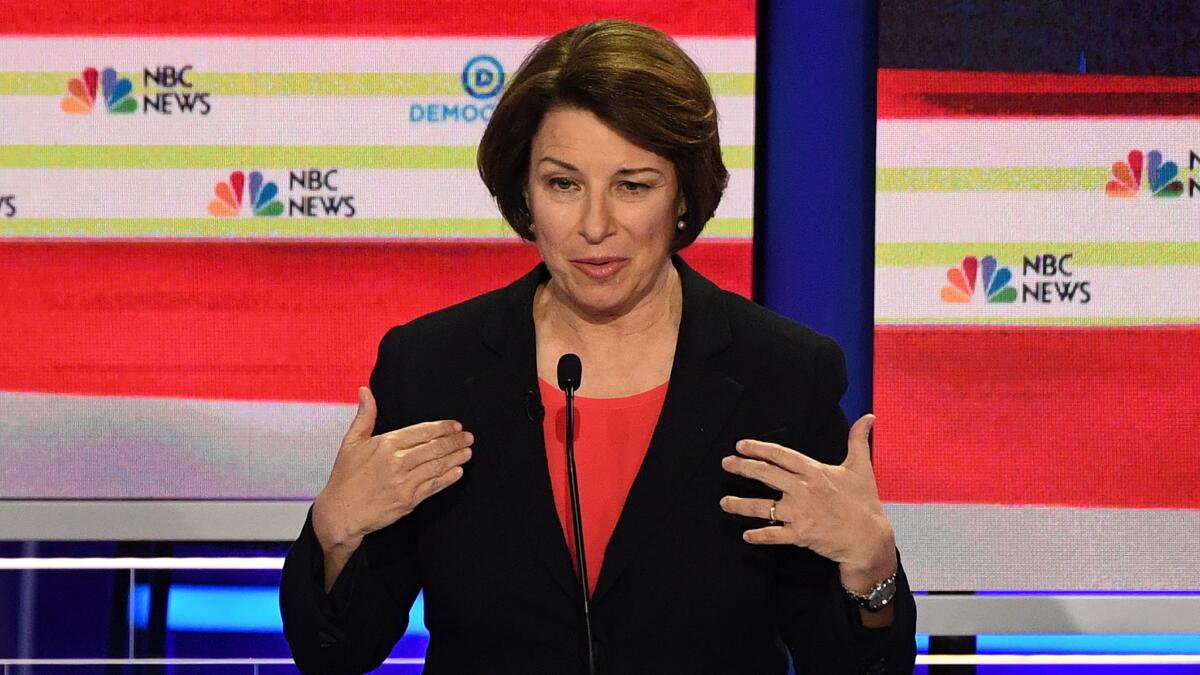
Likewise, what appeared to be a heinous fashion crime perpetrated by Washington Gov. Jay Inslee — accessorizing a navy blue suit with a forest green necktie — also turned out to be an exercise in personal branding. That’s because Inslee’s signature issue is climate change, and the green tie (which he sports with some regularity) is a symbolic nod to green issues. Whether or not the governor ultimately makes it to the White House, at least viewers are likely to remember his name — and his top priority — for some time to come.
(Compare that to Ohio Rep. Tim Ryan and former Maryland Rep. John Delaney, whose super-similar ensembles of navy blue suits, light blue neckties and American flag lapel pins had the effect of canceling them both out.)
Jay Inslee’s 2020 plan: Become president, save the planet »
New York City Mayor Bill de Blasio stood out among Night One candidates, though not for his navy blue suit or his purple necktie — the latter of which might have carried some symbolic weight but for Warren’s ensemble — but because, at 6 foot 5, he appeared to tower over his fellow candidates (including Beto O’Rourke, who clocks in at just one inch shorter).
Celebrity stylist Jeanne Yang (whose client list includes Keanu Reeves, Jason Momoa and Robert Downey Jr.) gave De Blasio a passing fashion grade. “He does a pretty good job considering the fact that most guys that tall typically go for the five-button suit,” she said. “My only issue is that hardly any of the guys [in the Night One debate] are showing any shirt cuff under their suits.”
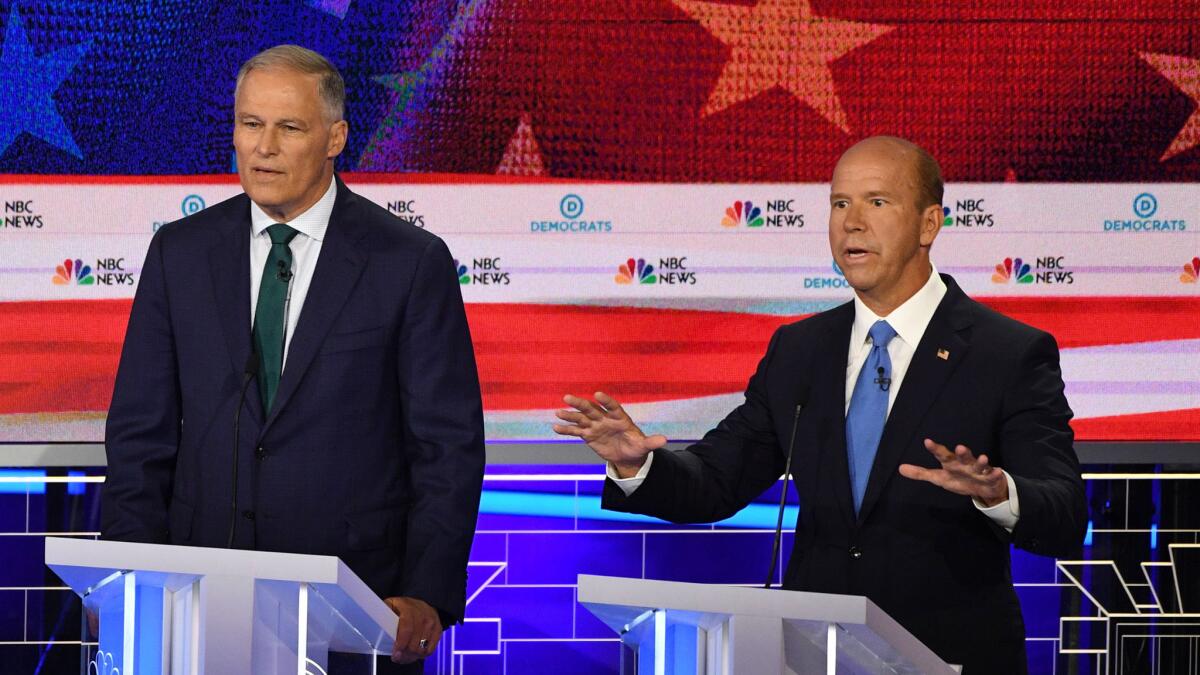
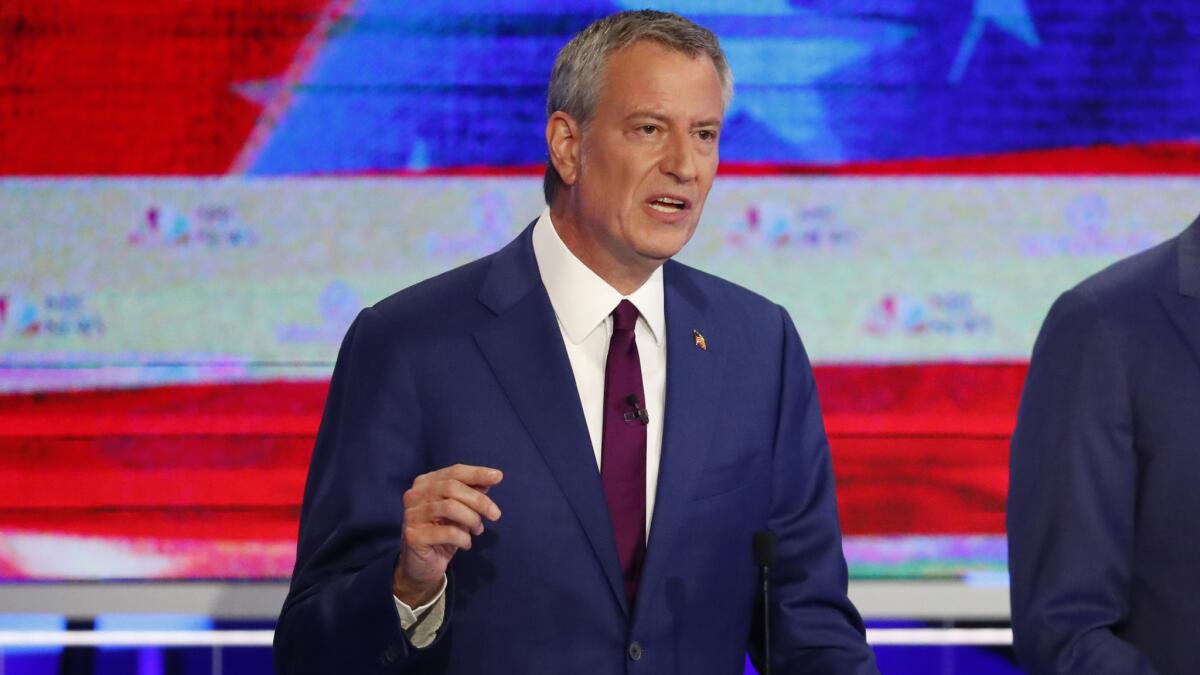
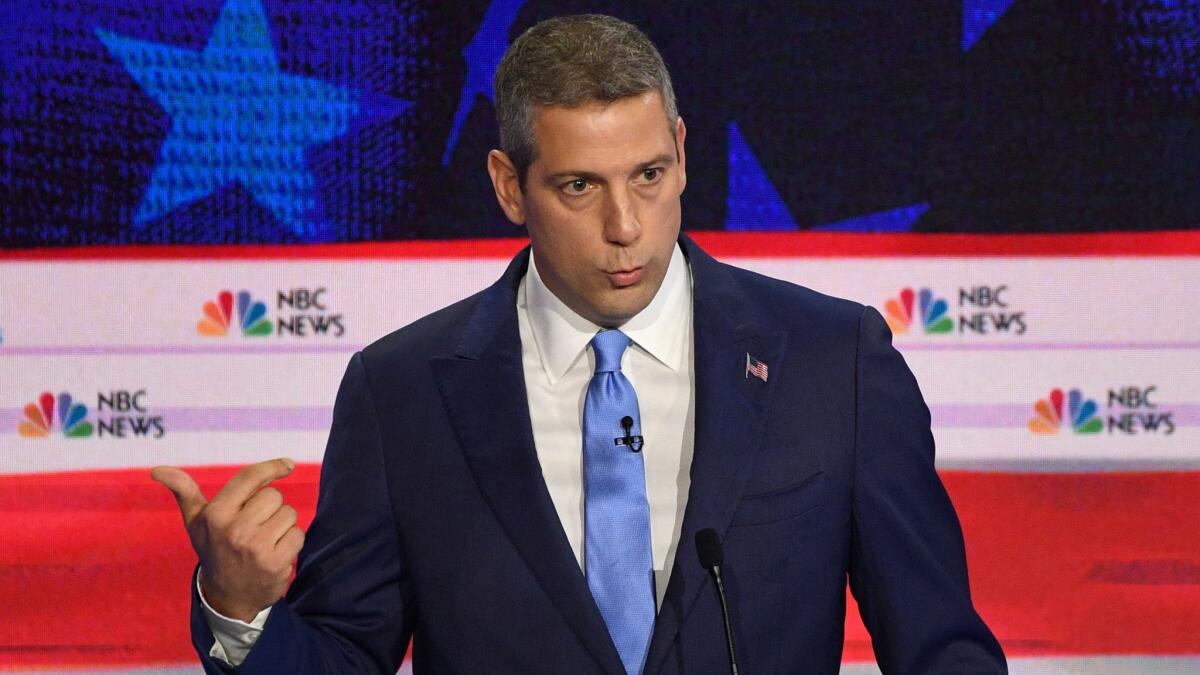
Speaking of O’Rourke, one of the questions going into the debate was whether the former Texas congressman would depart from his signature style – the rolled-up sleeves, dusty jeans and jettisoned jacket and tie vibe planted in American minds thanks to the Annie Leibovitz-lensed April cover of Vanity Fair. He did indeed wear a necktie – a bright blue one with white microdots that both evoked the star spangling on the U.S. flag and had him twinning with former HUD Secretary Julian Castro.
O’Rourke busts into Spanish at debate, then Booker and Castro también »
And then, of course, there was the tie-less look of Yang, which, though controversial, at least had the whiff of authenticity. Try doing a Google image search of Yang and see if you come across even a single photo of the entrepreneur wearing a tie. Donning a necktie for the debate would have been as off-brand as Vermont Sen. Bernie Sanders showing up sporting a top hat, monocle and spats. When you’re gunning for leader of the free world, potential voters want to know you’re genuine, reliable and consistent. (Even the current occupant of the Oval Office gets high marks for wardrobe consistency.) That’s no doubt why California Sen. Kamala Harris stuck with her signature pearls at the neck and Sanders’ blue dress shirt telegraphed his solidarity with the working class (having a blue collar and all).
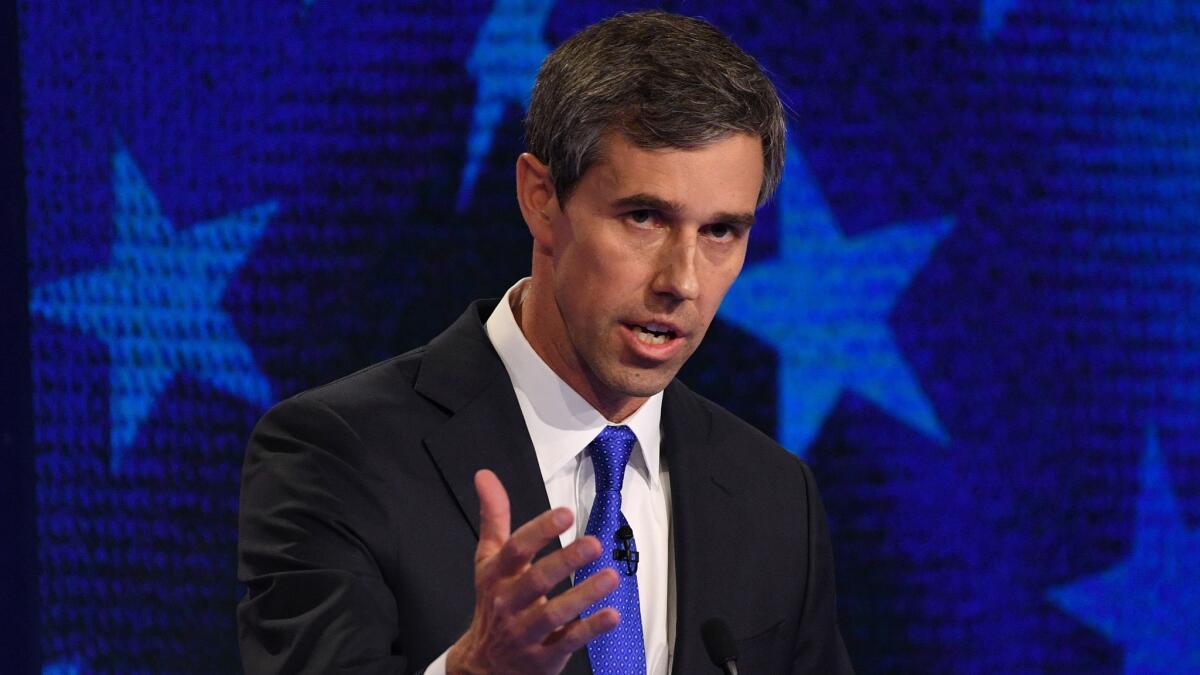
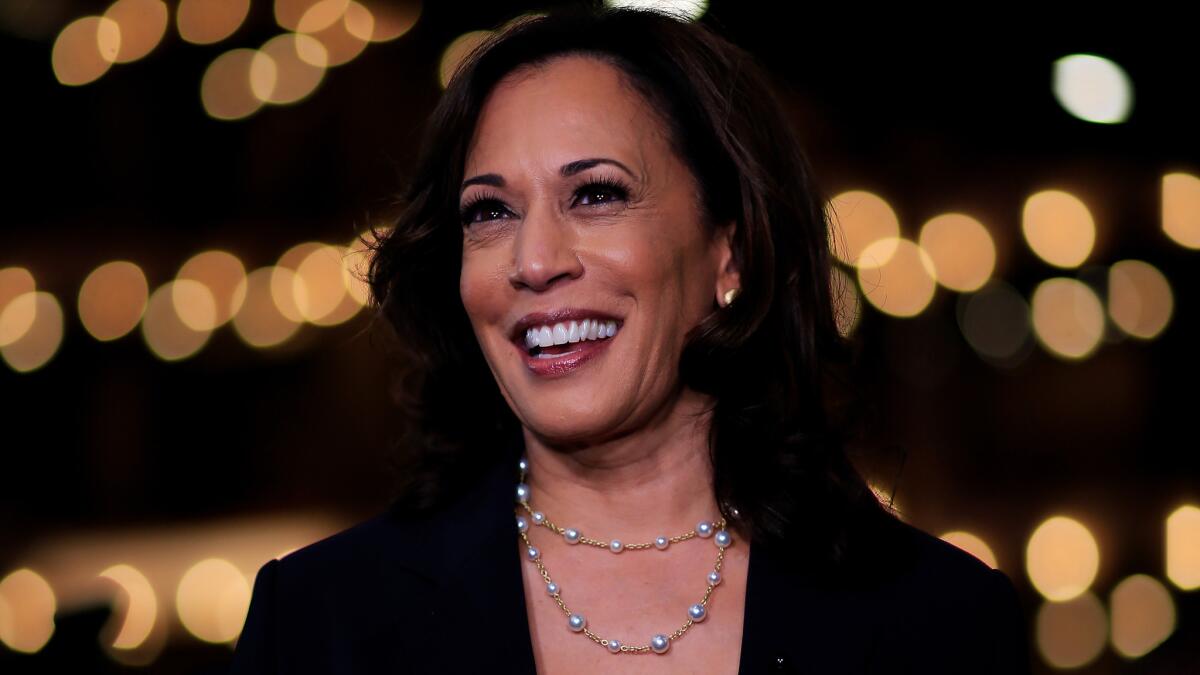
For some of the lesser-known candidates, the national debates were the first opportunity to introduce their brand – visually as well as verbally. Night Two’s notable newbie was California Rep. Eric Swalwell, whose orange necktie and lapel ribbon made for a standout look. The ribbon was to honor Jaime Guttenberg, a victim of the Parkland, Fla., shooting, and addressing gun violence is his campaign’s top priority. And Sen. Kirsten Gillibrand was the only female debater to forgo a blazer as part of her outfit, opting instead for a tailored dress that got almost as much attention on Twitter as Yang’s missing tie. (“I don’t care what Michael Bennet is saying at the moment, because his debate about socialism is boring me, so I’m just going to let you know that Gillibrand is wearing a dress that is a gorgeous shade of blue,” posted one admirer.)
The sartorial wild card of the two-night stand came in the form of author Marianne Williamson, whose sea foam green pantsuit and diaphanous flower-print blouse seemed as wonderfully, head-scratchingly out of place as her presence on the stage.
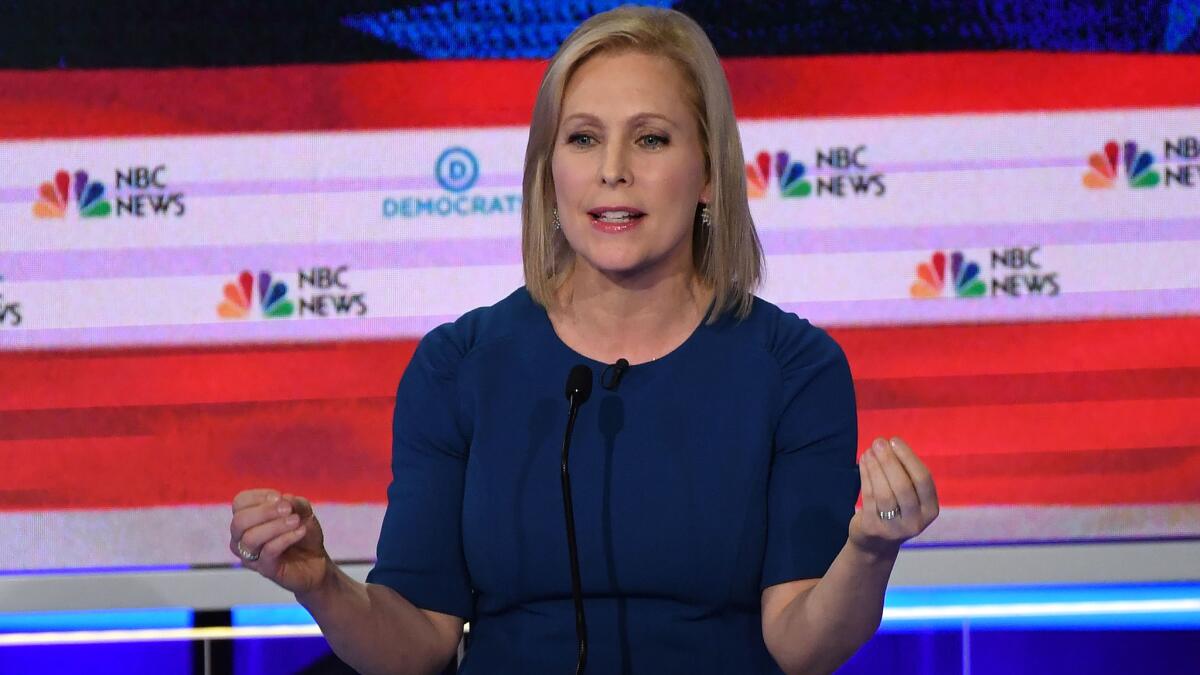
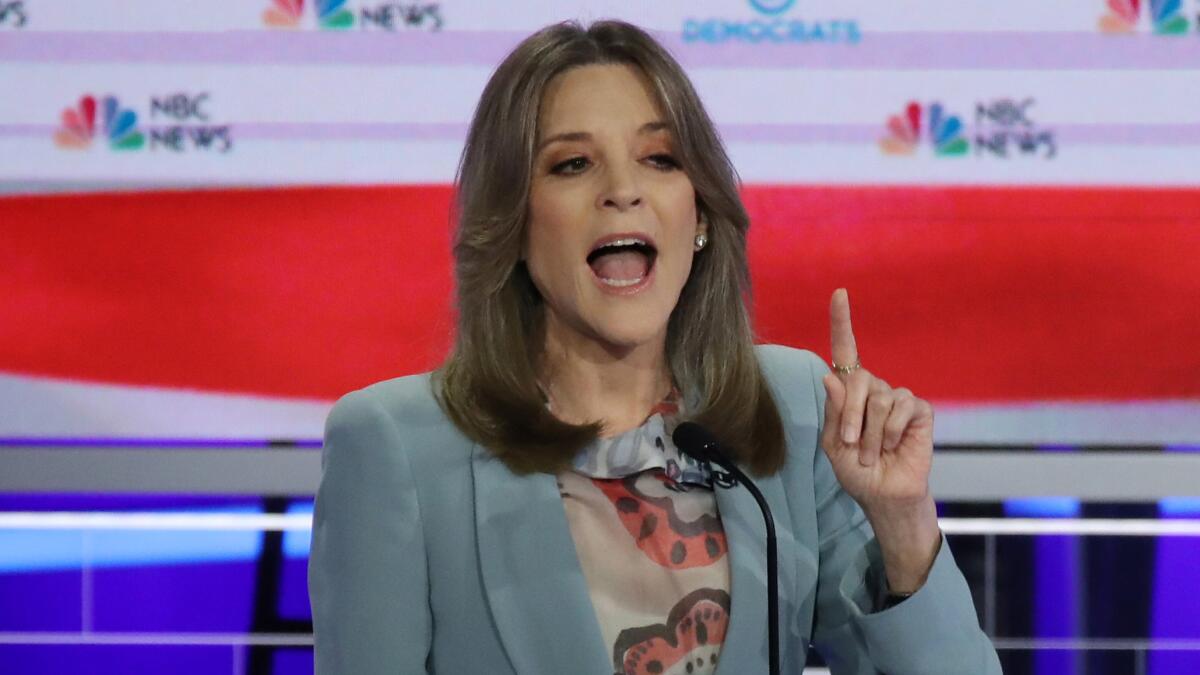
For more musings on all things fashion and style, follow me at @ARTschorn
Get the L.A. Times Politics newsletter
Deeply reported insights into legislation, politics and policy from Sacramento, Washington and beyond. In your inbox three times per week.
You may occasionally receive promotional content from the Los Angeles Times.








